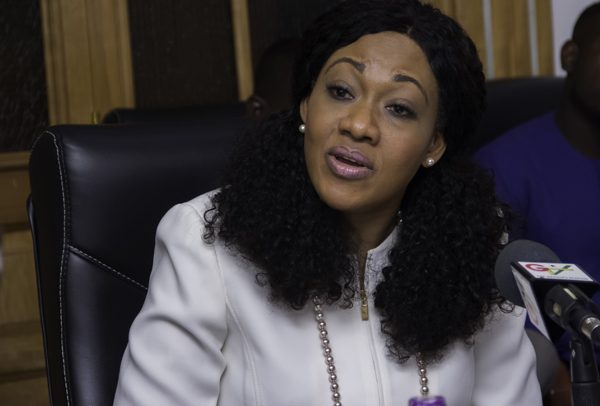Jean Mensa – Chairperson of EC
“A leopard cannot change its colours” is an African proverb or axiom and can be applicable to the Chairperson of the Electoral Commission (EC).
If she was a fair person when she headed the Institute of Economic Affairs (IEA), which Mr Asiedu Nketia acknowledged when he and other opposition National Democratic Congress (NDC) executives and ex-President John Mahama hosted her last Wednesday, she cannot reverse this attribute.
One’s character is a quality etched in their DNA and so impossible to alter. That is why the lady who won the hearts of both leading parties – New Patriotic Party (NPP) and the NDC – when she launched and sustained the presidential debate series and other democracy enhancing programmes at the IEA would definitely bring to bear those inherent attributes in her new assignment.
We can easily recall former President Jerry John Rawlings’ positive testimonial he offered Jean Mensa when he took his turn to receive her at his Ridge residence. Without doubt, therefore, the cynical remarks which greeted her appointment in the eyes of some NDC elements have all but evaporated into thin air.
NDC Scribe Asiedu Nketia could have pulled off one of his usual pranks when he told Mrs Mensa that “she has stopped being fair”. While we relish his sense of humour, we nonetheless think it is out of place to state that, given the stage we have reached in managing the ballot box and in a social media age, rigging polls in this country is impossible.
Were rigging possible under our circumstances and given the proclivity of the previous managers of the EC, the outcome of the last elections would be a far cry from what was recorded.
Those who think about rigging in today’s Ghana are just being overly mischievous. Such persons remind us about the ease with which pickpockets easily think about others going about their normal businesses as members of their stable.
The various aspects of the laws upon which election management is hinged have been sufficiently tested at the highest echelon of the judiciary. This coupled with the assortment of interventions and the constant IPAC meetings make it unwise for people to attempt rigging elections.
The electronic transmission of results which was rejected by the political parties during IPAC meetings suffered its fate because the then leading opposition NPP objected to that arrangement because of the possibility of manipulation.
Every aspect of elections is constantly interrogated and the necessary amends made through the IPAC mechanism that rigging now shares the dark chapters of the days of opaque ballot boxes and voter identification cards without pictures.
Today one top EC staff cannot engage in illegal transfer of voters from one constituency to another as it happened before without attracting the attention of the Chairperson of the commission and Ghanaians.
There also cannot be a selective seminar for a political party outside the view of the other parties. For a lady whose contributions towards the shaping of democracy in Ghana are commendable, compromising the integrity of elections – the bedrock of democracy – is simply not possible.


